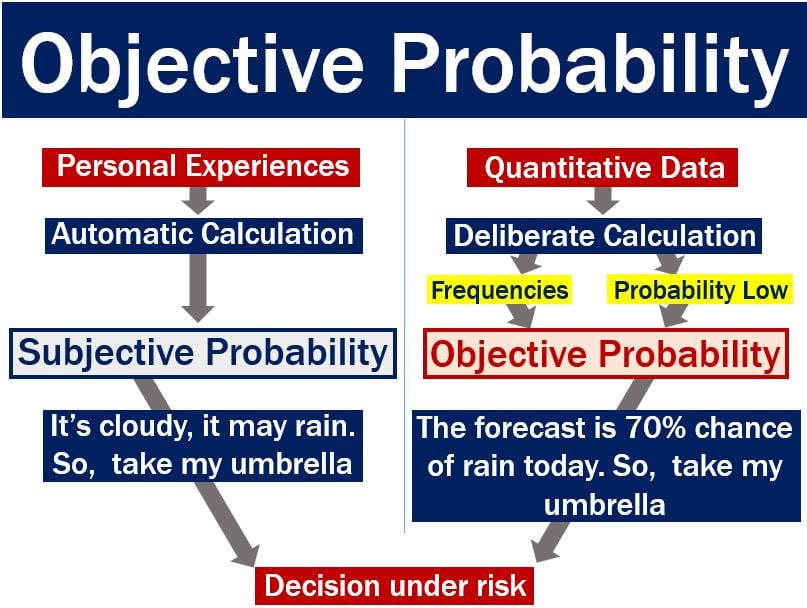Objective probability refers to estimating the likelihood that something will happen by using observations that we have recorded. A subjective probability or subjective estimate, on the other hand, is a guess which we base on personal experience. In other words, subjective measures use personal estimates, while objective measures use observations of what happened in the past.
We base objective probability on experiments, mathematical measurements, and statistics rather than personal experiences, anecdotes, or hunches.
Objective probability in finance
Being objective about probabilities is crucial in the world of finance. In fact, we should always try to avoid making emotional decisions when considering where to invest.
It is easy to fall into the anecdotal or personal experience trap. For example, we may kid ourselves that we always have good luck investing in mining shares.
Sometimes we may trick ourselves into believing that we never lose money on real estate.
However, without comprehensive, objective observations on which to base these beliefs, they are just anecdotes. Following hunches and our emotions can lead to extremely expensive mistakes and even bankruptcy.

Objective probability – an example
Imagine Pamela rolls two dice and hopes to get two fours. From an objective probability perspective, her chances are one in thirty-six.
However, subjectively, she thinks her chances of getting two fours are much higher because she has a ‘gut feeling about it.’
It does not matter how she feels or what hunches she may have, her chances are still one in thirty-six. This is because there are thirty-six possibilities when you roll two dice.
That one-in-thirty-six chance is the objective probability. It never changes, regardless of how the dice thrower feels.
According to The Free Dictionary, objective probability is:
“The likelihood of the outcome of any event based upon recorded measurements rather than subjective analysis. Objective probability is important to both technical analysis and fundamental analysis.”
What is subjective probability?
Subjective probability varies from person to person. Objective probability, however, does not.
As the name suggests, subjective probability comes from our personal judgment of an event occurring. In other words, it is subjective.
When we adopt a subjective approach we are using our beliefs, hunches, gut feelings, instincts, and anecdotal evidence.
There are no mathematical calculations or proof behind subjective probabilities.
However, in either case – subjective or objective probability – the calculation is just a guide. Neither one can tell us with certainty what the outcome will be.
